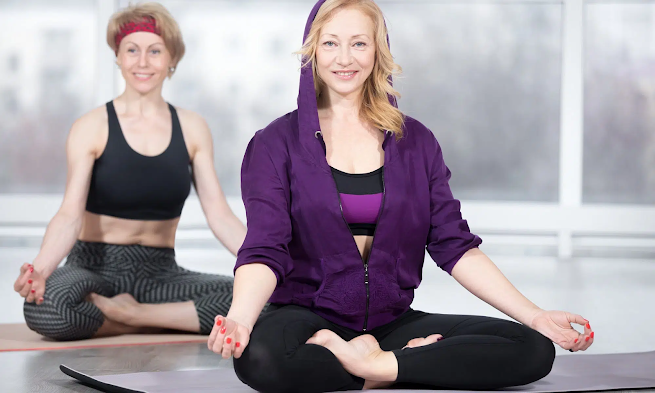Senior Health: How to Reduce Stress
Signs of stress in seniors
Indications that your senior loved one could be suffering from stress
include:
- Changes
in eating habits, including overeating or loss of appetite.
- An onset
of memory problems, including forgetfulness, lack of concentration or poor
judgment.
- Body
aches, increased pain or increased frequency of illness.
- Mood
swings, depression or increased irritability.
- Sudden
isolation and refusal to socialize.
Tips for reducing stress in seniors
- Practice
meditation: Meditation is a powerful calming technique that helps
focus on breathing and relaxation. However, if it isn’t right for your
loved one, choose another calming activity like painting, going for a
walk, swimming or reading in a quiet room.
- Make
healthy diet choices: Stress and tiredness can lead to making poor
dietary decisions, which lead to yet more stress and fatigue. Help dad
resist the urge to reach for a candy bar and choose whole grains, fruits,
vegetables, fish and lean meats instead. Holding him accountable on a
daily basis can help effectively break this cycle.
- Listen
to music: Listening to music is a well-known relaxation technique,
reducing cortisol (the stress hormone) as well as blood pressure. Gentle,
calming classical music or even the sound of the ocean will help invoke
feelings of calmness. While more fast-paced, upbeat music can increase
levels of dopamine (the feel-good hormone).
- Join a
club: Studies have shown that participants in social clubs and
activities are far less likely to suffer from loneliness, stress, and
depression. Find an activity or hobby mom enjoys, like gardening or
reading, and see if there are local senior clubs in the area for her to
join. Or if mom resides in a senior living community, get in touch with
their activity coordinators to see what kinds of activities/social clubs
they are offering on a regular basis.
- Get
active: Regular exercise directly reduces stress and boosts both
mental and physical health. What’s more, you don’t have to do a lot of it
— just 20 minutes a day is needed to get most of the benefits of exercise.
Activities like walking, dancing and yoga are all great options for
seniors. However, it’s essential to consult your loved one’s physician
first in order to ensure the new exercise will not put them at risk of
injury or overexertion.
Assisted Living Services for Independent Seniors in Whippany NJ
At Lester
Senior Living, we prioritize a stress-free environment — allowing residents
to enjoy their senior living community, friends, and social activities while we
manage the nuances of day-to-day living. With comfortable, open-plan apartments,
a lively community spirit and an events calendar filled with activities, we
offer a welcoming and easy-going atmosphere for all of our senior residents.
In addition to assisted living, Lester also offers independent living,
comprehensive memory care, and short-term respite stays. For more information
about our assisted living facility in Whippany NJ, please contact us to
schedule a tour or visit our website at: https://jchcorp.org
The original blog is available on https://jchcorp.org/senior-health-how-to-reduce-stress/.




Comments
Post a Comment